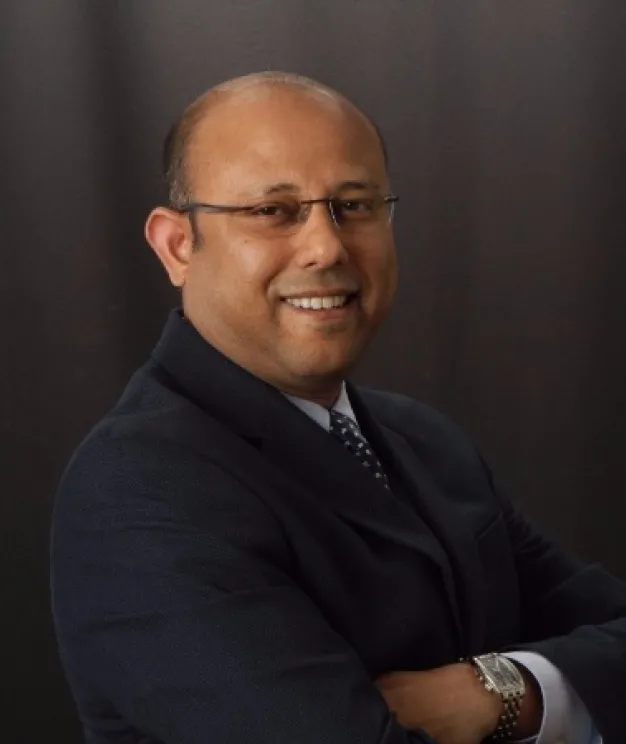Dual MEng-Mfg & Naval Arch. '01
Business Development, Internet of Things (IoT)
Honeywell
Nilothpaul Dutta is the Business Development Executive, Internet of Things (IoT) at Honeywell’s headquarters in Richmond, Virginia. He’s leading a $25M revenue-portfolio across multiple channels for Tridium Inc., an independent business entity of Honeywell International.
These days, Dutta is keeping busy managing double digit growth of 5 OEM businesses across North and South America. His responsibilites include business development, price-modeling and go-to-market processes for Niagara based controllers & Edge to Cloud NPIs. Here’s what he recalls of his days in Ann Arbor, and his advice for today’s Tauber students.
Q: What drew you to the University of Michigan?
The premier program in Concurrent Design at the department of Naval Architecture and Marine Engineering. It is known to be one of the best in the world. I took a few manufacturing classes and realized the power of thinking in terms of product lifecycles: design through manufacturing. The program in manufacturing is also one of the top in the country. So I decide to pursue that as well. The Tauber program was a natural extension to the bigger picture of business management.
Q: When you think back on your time with the Tauber Program, what stands out?
The options to choose from technology and business courses, the diverse background of students and the guaranteed summer internship options from top companies.
Q: What sticks with you as important lessons learned while at the Tauber Institute?
As a professional engineer, I was used to focusing on technology and finite results. In that world, either something works or it does not. These are absolutes. The broader world, like life, is never absolute. It is networked. Tauber program and the business school introduced the value of the bigger picture, the business drivers that govern partial usage of multiple technologies and, of course, the humility of brilliant minds, including Mr. Joel Tauber himself.
Q: What’s the most important thing to remember in business?
Sustainability. As we race to make the numbers for the next quarter, often we run the risk of mortgaging the future for short term gains. While innovation helps charter new paths, a work-culture and business strategy focused on a slightly longer term gain eventually lead to a stronger business. Controlled greed can be as useful as nuclear power.
Q: What recurring principles do see showing up in your career?
Change is inevitable and at times quite unexpected. Diligence outshines sporadic brilliance, and respectfulness is key to professionalism.
Q: What advice would you give to current or future Tauber students?
This is the best program of its kind and truly prepares you for a broad range of global possibilities. Take calculated risks and seek out radically new situations, challenges and cultures. The balance of business and technologies as well as the diversity of the Tauber eco-system provides you with a unique head-start.

